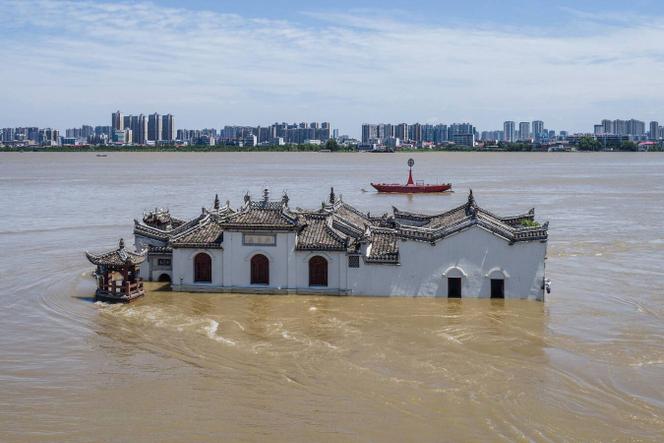


Heat wave in the US, wildfires in Russia, torrential downpours in China... Sonia Seneviratne, a Swiss climatologist and professor at the Swiss Federal Institute of Technology in Zurich and vice-chair of Working Group I of the Intergovernmental Panel on Climate Change (IPCC), looks back at the many extreme weather events currently affecting the planet.
What's striking is that all this is happening at a time when we've mostly emerged from the El Niño phase [the warming of the equatorial Pacific raising global temperatures]. What is materializing in a dramatic way before our eyes is mainly the repercussions of man-made climate change. The planet has warmed by 1.2 degrees Celsius compared with the pre-industrial era, resulting in more frequent, longer and more intense heat waves. Warmer air increases soil evaporation, aggravating droughts. At the same time, the air can hold more moisture, increasing extreme precipitation. Because of global warming, tropical cyclones are becoming more intense and bring more rain, as we saw with Beryl.
Not quite, because if we don't immediately mitigate greenhouse gas emissions, the situation will get even worse. Heat waves that used to occur once every ten years in the pre-industrial era are now happening three times every ten years with 1 degree Celsius global warming. They will occur four times every ten years at 1.5 degrees Celsius and nine times at +4 degrees Celsius. At +2 degrees Celsius, precipitation will be on average 70% more frequent on land and 170% at +4 degrees Celsius.
Climate change is not a passing crisis. In the best-case scenario, we might be able to stabilize temperatures if we manage to reduce net greenhouse gas emissions to zero. We would then experience heat waves, extreme precipitation and droughts as frequent and intense as they are now. In the worst-case scenario, we'll experience events on an unprecedented scale, with an even more unstable climate system and the risk of reaching global or regional tipping points. Whatever the case may be, we won't be returning to the climate of the 20th century. This is different from the Covid-19 crisis, where a vaccine was found, and we returned to normal. We need to let go of the climate of the past.
The average global temperature has not been seen for over a hundred thousand years. We are in uncharted territory, in increasingly difficult conditions to assess due to the lack of precedents. In this uncertain regime, we could soon cross regional tipping points, with abrupt changes such as the disappearance of the Greenland and West Antarctic ice caps, the thawing of permafrost [permanently frozen soil], the corals' extinction or the Amazon rainforest's collapse. That said, there is still a great deal of uncertainty about what level of rising temperatures could trigger these disruptions. Climate models have a hard time representing them.
You have 44.06% of this article left to read. The rest is for subscribers only.
